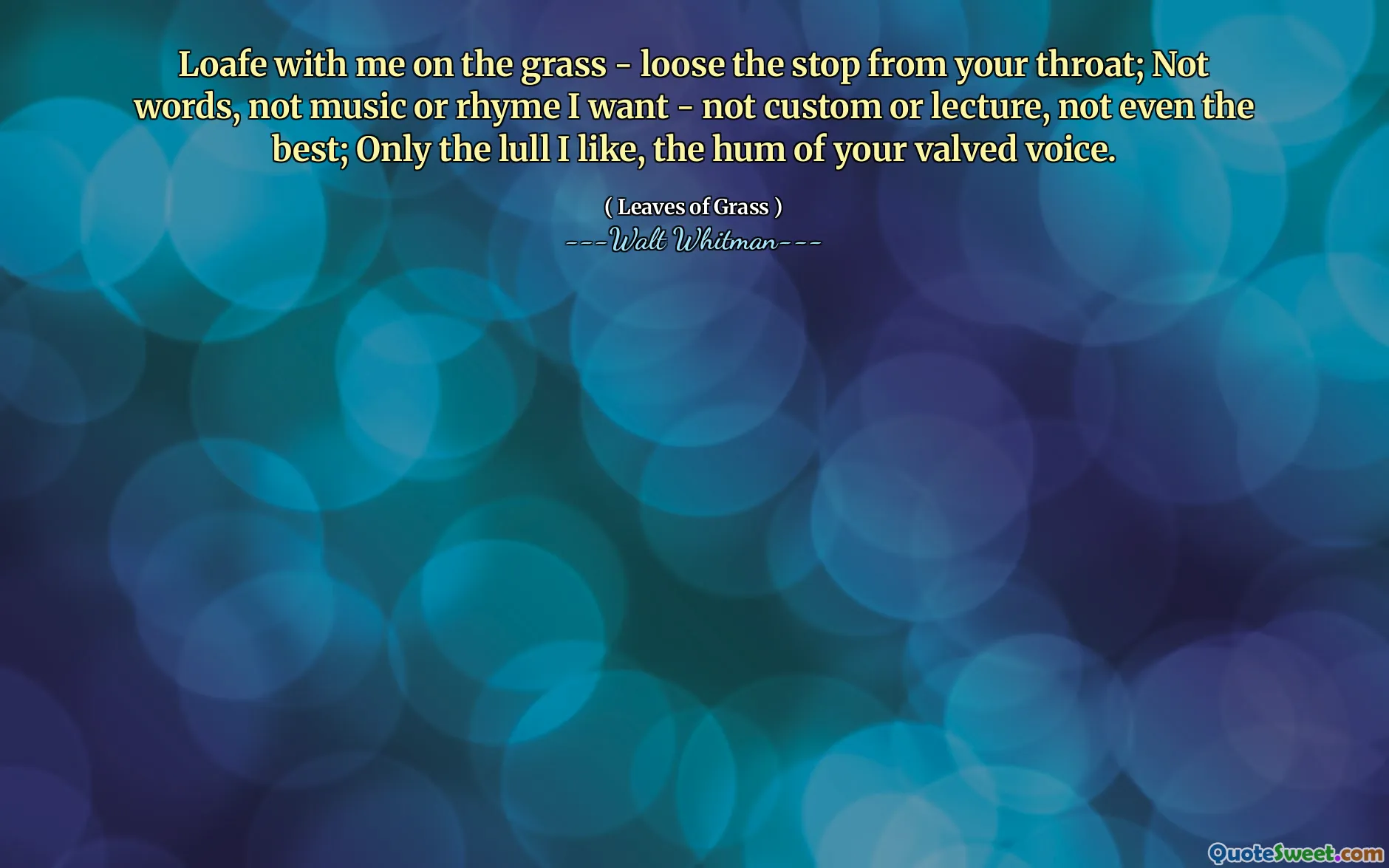
Loafe with me on the grass - loose the stop from your throat; Not words, not music or rhyme I want - not custom or lecture, not even the best; Only the lull I like, the hum of your valved voice.
Walt Whitman's quote profoundly encapsulates a yearning for authentic, unstructured connection and communication. In this passage from Leaves of Grass, the invitation to "loafe" together on the grass conveys a desire to engage in quieter, more relaxed moments of companionship free from societal expectations or polished expressions. Whitman eschews the need for traditional forms—words, music, rhyme, conventions, and instruction—suggesting that true resonance emerges from the natural, subtle, and unforced: the "lull" and the "hum" of a living voice.
This particular preference reveals Whitman's transcendentalist leanings, emphasizing direct experience and presence over formal artifice. The grass, a symbol of nature and simplicity, serves as the ideal backdrop for this intimate human interaction, promoting the idea that connection thrives best when it is organic and unpretentious.
One can interpret the "valved voice" as the vibrant, earthy sound of personal expression—raw and unfiltered, resisting societal constraints. This appreciation for voicing oneself naturally aligns with Whitman's broader celebration of individuality and the human spirit.
In the modern context, when our lives are saturated with noise and structured communication, Whitman's words remind us to pause and appreciate the quiet companionship that deep conversations, without agenda or artifice, can offer. It's an invitation to feel the comfort in just being—and loitering—with another person, a testament to the profound value found in presence itself.






